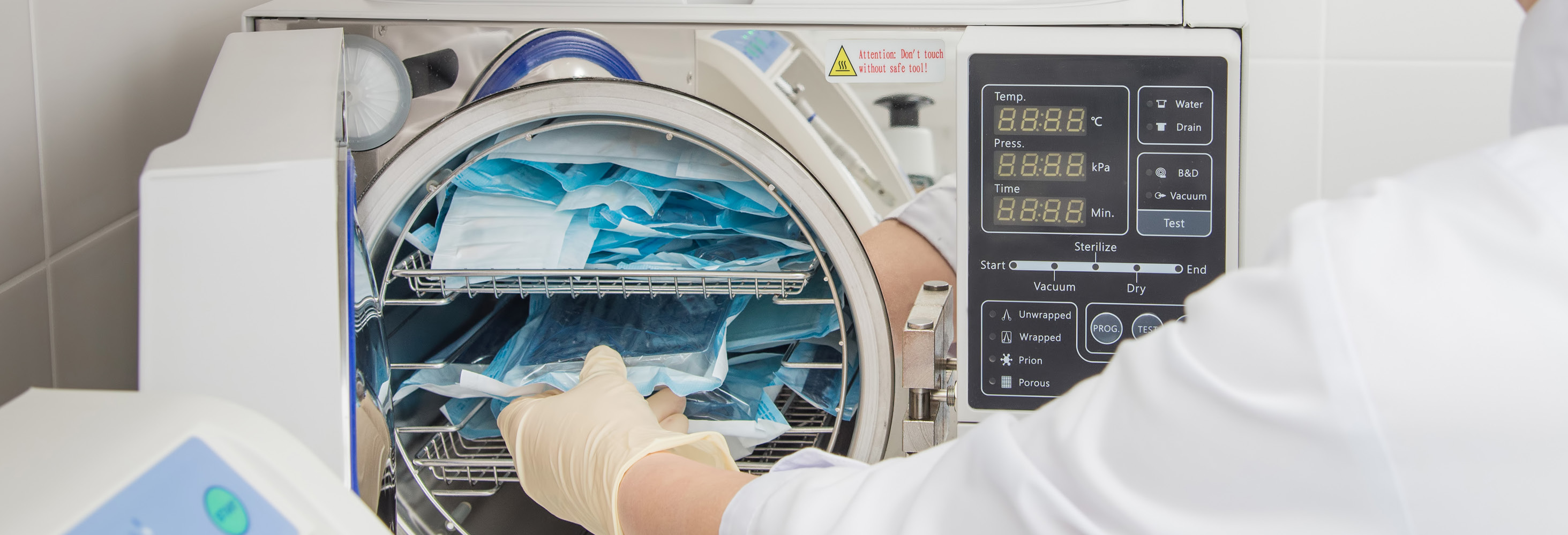

Health/Health Careers
Central Sterilization Technician
Central sterilization service technicians provide support to all patient care services in a wide variety of healthcare facilities. They are responsible for decontaminating, cleaning, processing, assembling, sterilizing, storing, and distributing the medical devices and supplies needed in patient care, especially during surgery. Most healthcare workers are considered essential, but few are as fundamentally important as sterile processing technicians. In this short-term program, students will learn in an engaging classroom setting, then apply those skills to the clinical experience at a local healthcare facility. The curriculum of this program follows the requirements of the Healthcare Sterile Processing Association (HSPA), formerly known as IAHCSMM, the leading authority on training and certification in the field.
Ready to learn more? Complete our online form or contact us at 319-398-1022.
Upcoming Offerings:
No upcoming dates at this time.
Tuition Assistance:
Yes. Full tuition assistance is available to support your career goals. Fill out our referral form at www.kirkwood.edu/cefunding.
*Some eligibility restrictions may apply.
Industry Credentials Earned:
Completion of this course, plus 6 months to 2 years of practical work experience, will qualify the student to sit for the HSPA national certification exam.
Entrance Requirements/Prerequisites:
Prospective students must be at least 18 years of age or turning 18 within 6 months of the start of the course. Students must have evidence of high school diploma or equivalent at the start of the course or will earn such within 12 months of the start of the course.
Delivery Method:
Online, lab
Length of Program and CEU Credits:
66 hours, 7.9 CEUs
Program Completion Requirements:
This is a pass/fail certificate. Student performance will be evaluated by a combination of didactic and lab scores, with a minimum total of 75% overall to pass the course.
Course Objectives:
• Describe the central service technician’s job responsibilities, professional training, and employment opportunities.
• Learn and apply general medical, anatomy, and microbiology terminology.
• Conduct proper, consistent infection control and quality assurance methods.
• Identify surgical instruments and their regulations and standards.
• Familiarize with decontamination tools and processes.
• Learn both low- and high-temperature sterilization methods.
• Apply tracking systems and point-of-use processing.
• Manage inventory and assemble surgical instrument trays.
Learning Outcomes:
Upon completion of this course, students will obtain the skills needed to work as a central service technician in a hospital setting. Basic medical fundamentals such as medical terminology, anatomy, microbiology, and infection control will be learned and mastered. Students will also apply sterile processing basics such as identifying surgical instruments, using decontamination tools and processes, ensuring disinfection and quality, read and edit tracking systems, conducting low- and high-temperature sterilization methods, retaining safety protocols, understanding point-of-use processing, managing inventory, and assembling surgical instrument trays. Completing this course will also prepare those who are planning on taking the HSPA national certification exam.
Other Items to Know About this Course:
The following textbook will need to be purchased separately: Sterile Processing Technical Manual (CRCST 9th edition) HSPA 2023, ISBN: 979835070521
Pathway to Credit Program:
None.
Related Information:
NA
